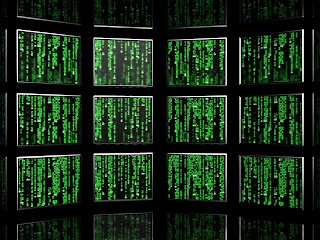Internet memes, those single images overlaid with a quote or quip, are all popping
up all over social media sites, like Facebook and Twitter. Some are funny, some
make one reflect, but those hoping to prove a point can often be inadequate to the
task.
One such meme that's becoming more frequent is the challenge New Atheist Sam Harris
offered theists during his 2007 debate against Rabbi David Wolpe. Harris asked, "I
would challenge anyone here to think of a question upon which we once had a scientific
answer, however inadequate, but for which now the best answer is a religious one."
1
Many people have read the challenge and chat boards are filled with comments from
people who simply cannot think of a single question that qualifies. Some atheists
have crowed about the inability of theists to do so. Has history only gone from
the religious to the scientific? Is there no question that can meet Sam Harris'
charge?
Astronomer Robert Jastrow thought of one. Science had assumed that the universe
had always existed. It was infinite and eternal. This was so ingrained into the
scientific thinking of the day that Einstein adjusted the calculation of his General
Theory of Relativity to only show a steady state universe.
2After the Big Bang model was proposed, vehement arguments ensued about the whether
the universe had a beginning. After its beginning was confirmed, Jastrow told Christianity
Today "Astronomers now find they have painted themselves into a corner because
they have proven, by their own methods, that the world began abruptly in an act
of creation to which you can trace the seeds of every star, every planet, every
living thing in this cosmos and on the earth. And they have found that all this
happened as a product of forces they cannot hope to discover. That there are what
I or anyone would call supernatural forces at work is now, I think, a scientifically
proven fact."
3
There you go. Sam Harris' challenge is met. However, some may object to this answer,
saying that it was actually science and not religion that proved the universe had
a beginning. I would argue that point, but let's lay it aside for a moment. Is there
another question that relies only on religiously-obtained knowledge to provide a
better answer than science?
Let's try this one: "Can we clone a human being?"
A question like this really asks two things: it asks if humanity is capability of
performing the task and it questions the prudence in performing it. For the first
part, the cloning of large mammals from adult cells was not possible prior to the
creation of Dolly the sheep in 1996. Through the discovery of somatic-cell nuclear
transfer it became possible to clone sheep, monkeys, and even human beings. We didn't
have the science, so the answer to "Can we clone a human being?" was "No,
it's not scientifically possible." But now that it is possible
4, we must turn to the second implication of the question, whether it is prudent
to do so.
To answer to this part of the question, we find that science is woefully inadequate
to the task. This is because science deals with the what, the why, and the how of
natural processes. In other words, it only worries about function. It cannot deal
with the questions that focus on the ought, the good, or the right. Science can
tell us the best way to transplant a kidney is by using a living donor. However,
it is totally impotent to tell us whether the living donor should be restricted
to volunteers or enlarged to include, say, convicted murders who haven't given consent.
This is a moral question, and such questions surround our scientific advances routinely.
Similarly, science says we can clone a human being. The possibility is there for
science to use cloning as way to create spare parts for people, allowing for transplants
that wouldn't be rejected.
5But most nations have outlawed people even attempting to do so. The ability
to clone humans is now not limited by the procedure, but by its moral implications
and the concept of human worth and dignity. The answer to "Can I clone a human
being?" is still "no" but the reasons for that answer are informed
by religious values and not by scientific ones.
To decide to clone people on only the scientific response to this question would
be barbaric. As Baruch Cohen explains, the Nazi experimented by freezing holocaust
victims and the data they obtained is the only controlled scientific data we have
on hypothermia.
6But
because it gives us scientific answers surely doesn't mean we should duplicate it.
It should be evident that science alone cannot answer all the questions humanity
has. It cannot even answer all the questions it raises though its own discoveries.
Questions about God, the purpose of man, the ethics of cloning or transplantation,
and even how we gather our scientific data must come from somewhere other than science.
Religious and moral beliefs are necessary, not only because they can answer these
questions, but because without them science can become a monster acting on whatever
capability it discovers.
It isn't sceince but virtue that measures the enlightenment of a society.
References












.JPG)

